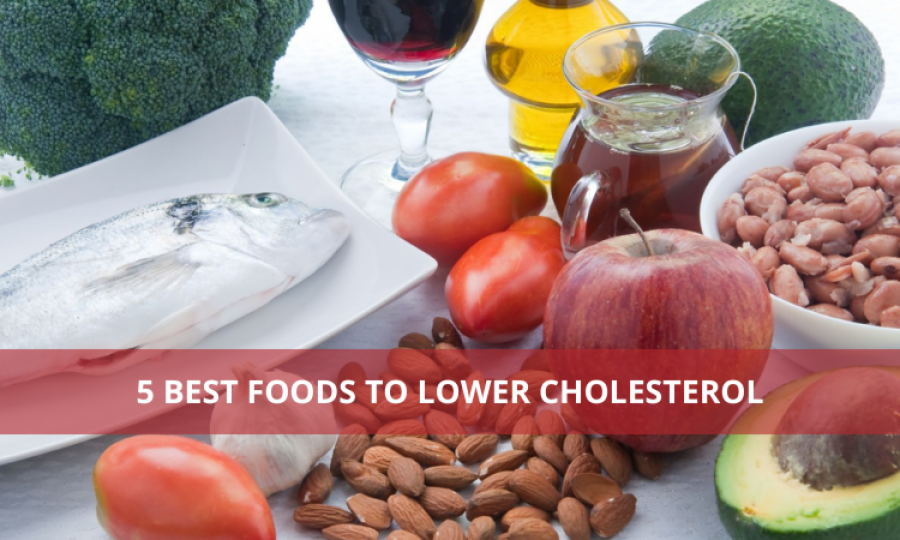5 Best Foods To Lower Cholesterol

Diet plays an essential role in our health and well-being. Many diseases are impacted by the food we eat. Cholesterol is a fatty substance in the blood that is required to make healthy cells. It has two types: LDL/ "bad" cholesterol, and HDL/ "good" cholesterol. When its LDL type is in excess, it has an associated risk of heart disease. To manage high levels of cholesterol, physicians often advise lifestyle changes, including diet. Some of the best foods to lower LDL levels are:
Berries
Studies have found that strawberries lower the risk of heart disease due to their high levels of polyphenols. Polyphenols are plant-based compounds that are known to help regulate the cardiovascular system.
Moreover, raspberries have a high fibre content, about 8 grams in one cup, which helps decrease cholesterol levels and aid digestion. An overall adequate fibre intake of at least 25 grams per day is recommended.
Research has also linked eating blueberries regularly to decreased blood pressure. It helps to dilate blood vessels which slow the rate of atherosclerosis.
Beans
The soluble kind of fibre found in beans has been associated with improved cardiovascular health. Chickpeas are a great option as ⅓ cup of it has around 12 grams of fibre which is half the recommended daily value. Their antioxidant content also helps lower cholesterol levels.
Black beans are also great for fibre and protein. They have about 8 grams of fibre in a half-cup, 100-calorie serving.
Lentils/pulses are filled with protein, fibre, antioxidants, minerals, and vitamin B. All of these help prevent plaque buildup and improve blood flow.
Green Leafy Vegetables
Leafy greens promote the production of nitric oxide in the body, which can dilate blood vessels and reduce atherosclerosis.
Kale is filled with many nutrients such as potassium, magnesium, antioxidants, and fibre, all of which are good for the heart. Along with Brussel sprouts and cabbage, it helps neutralize the effects of sodium on the body, thereby reducing hypertension.
Nuts
According to studies, regular intake of walnuts has been associated with a decreased risk of heart disease. One serving of these nuts helps lower the risk of cardiovascular disease by 19%.
Moreover, peanuts contain antioxidant and anti-inflammatory compounds which are related to the blockage of cholesterol absorption in the gut.
Additionally, research shows incorporating almonds into the diet reduces the risk of heart disease by keeping up HDL and lowering LDL levels.
Furthermore, data suggests pistachios also raise HDL and lower LDL levels. These nuts also contain fibre and antioxidants which protect the body from oxidative stress that leads to plaque build-up in arteries.
Soy Foods
Research has linked soybeans, tofu, and soy milk with lower cholesterol levels. Edamame is also helpful in reducing bad cholesterol by replacing other proteins which usually have a high saturated fat content. It is rich in fibre too.
Packed with antioxidants and minerals, unsweetened soy milk improves lipid levels as it is lower in saturated fats as compared to its alternatives, like coconut milk.
Advertisement
Trending
Popular
Hair loss: Discovery uncovers key stem cells that could reverse ...
-
Broccoli sprout compound may help lower ...
11:31 AM, 25 Feb, 2025 -
Gas Pain vs. Heart Attack: How to tell ...
09:00 PM, 22 Feb, 2025 -
Coconut oil supplement shows promise ...
08:00 PM, 20 Feb, 2025 -
Normal vitamin B12 levels may still ...
05:00 PM, 19 Feb, 2025



